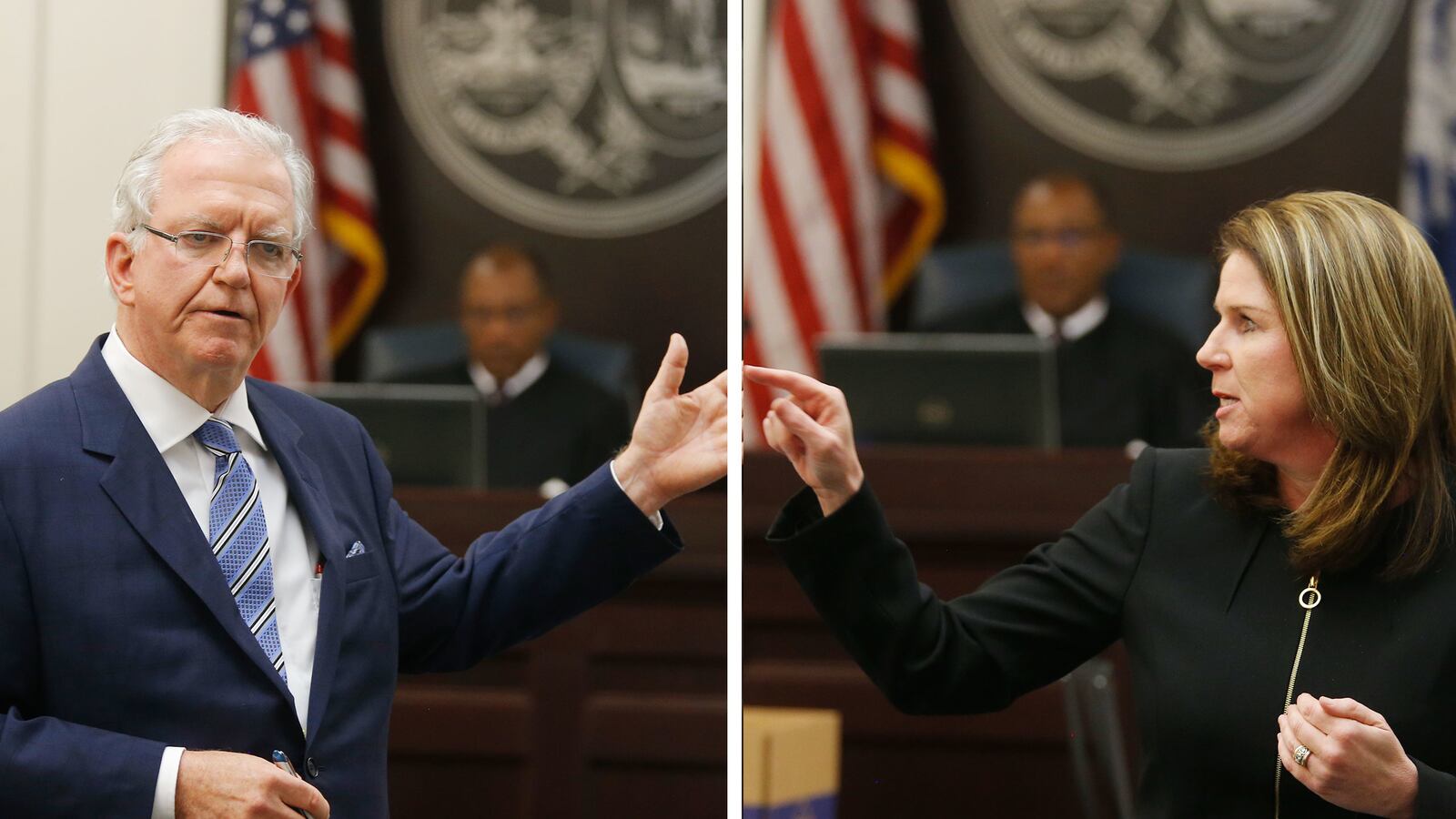CHARLESTON, South Carolina—A defense lawyer claimed his client was unfairly made a “poster boy” for police misconduct.
A prosecutor countered that Michael Slager wrongfully killed an unarmed man who repeatedly tried to flee custody and posed no danger.
Now a jury will decide whether the former South Carolina policeman is guilty of the murder or manslaughter of Walter Scott, a 51-year-old motorist shot five times in the back after running from a traffic stop and struggling with Slager on April 4, 2015, in North Charleston, South Carolina.
Slager’s murder trial culminated on Wednesday as lawyers made closing arguments, their final pitch to a jury who has been presented with a month’s worth of evidence and testimony on the encounter between the former North Charleston policeman and Scott, including a bystander’s video of the fatal shooting. That footage, which showed Scott escaping Slager’s grasp and turning to flee from Slager before being shot dead, was the centerpiece of the prosecution’s case. It also provoked much public outrage upon its release 18 months ago, seen by some observers as another example of unwarranted deadly force by a police officer against an unarmed black man.
Slager took the stand on Tuesday in his own defense, testifying that he feared for his life when he shot Scott at the end of a foot chase. Slager said Scott overpowered him as he tried to make an arrest, eventually grabbing his police Taser and charging toward him.
The government sought Wednesday to ridicule the former police officer’s claims, reminding jurors of other witness testimony that Scott was never aggressive toward Slager and only tried to run. Prosecutor Scarlett Wilson contrasted photographs of Slager and Scott taken after the shooting. Slager, she pointed out, had no facial abrasions, an intact earpiece and radio, and an undamaged badge and nameplate. Scott’s driver license, which Slager obtained when he initially pulled Scott over for a broken taillight, was still tucked snugly under Slager’s belt.
“There’s no evidence he was going after that man. No evidence,” said Wilson. “That is not the sign of a violent, throwdown, life-threatening fight.”
Photos of Scott and his belongings showed the suspect much worse for wear. Scott’s watch and cellphone were damaged, his face and head were bruised, and his hands looked as if “they have been chewed up by asphalt.”
Wilson attacked the defense’s contention that the stress of the encounter and Slager’s sprinting in heavy gear factored into the police officer’s decision to use deadly force, despite the suspect running away from Slager and standing 18 feet away when the first shot was fired.
“The idea that because someone gets winded they can’t make a decision, it’s ludicrous,” she said, characterizing a laceration on Slager’s hand as a “glorified paper cut.”
Speaking loudly and forcefully, Wilson further cast skepticism on Slager’s testimony about his struggle with Scott, reminding jurors that 18 months earlier the policeman had described Scott as “wiggling” on the ground as he tried to handcuff the suspect, whom he had Tased or attempted to Tase multiple times.
“With 50,000 volts I bet he was wiggling,” said Wilson, noting that Slager refrained from using more violent terminology in interviews with police investigators. “[Slager] didn’t say ‘thrashing.’ He didn’t say ‘pummeling.’”
But while the government blamed Slager for Scott’s death, defense attorney Andy Savage said it was Scott who bore responsibility for his own demise on the Saturday morning before Easter 2015.
Speaking so softly it was at times difficult to hear, the renowned lawyer piped up considerably when repeating the commands Slager had shouted over and over to Scott, which were recorded by assorted cameras and police radios.
“STOP!” shouted Savage. “TASER, TASER, TASER!”
Scott did not stop, and it was this “felonious conduct” that led to the fleeing suspect’s death, argued Savage.
“If you’re warned with a Taser isn’t it about time to say, “Hands up, I give up?” asked Savage. “It’s crazy. Who does that? Who attacks a policeman over a brake light?”
Deeming Scott “out of control” and alluding to trace amounts of cocaine found in Scott’s body during an autopsy, Savage told the jury that Slager was in fear of his life and acting as a “law enforcement officer carrying out his duties.”
“You’ve got to think about what’s going on in those nanoseconds and what was going on in Mr. Slager’s mind,” said Savage.
As he did previously during the trial, Savage carted out a heavy tub full of the protective gear Slager wore every day as a policeman.
Briefly handling a bulletproof vest, Savage asserted that a police officer’s greatest protection is actually “the support of the community as they go about their duties.”
He asked for an acquittal of Slager.
Later, Wilson offered similar sentiments about the challenges police officers face on the job.
“It’s just not the weight of the duty belt. It’s just not the weight of the vest. They have the weight of our nation on their backs,” she said.
But, she continued, police officers sometimes do wrong.
“If we don’t hold people accountable when they mess up,” Wilson said, “it all falls apart.”
A jury began deliberating the case Wednesday evening.






